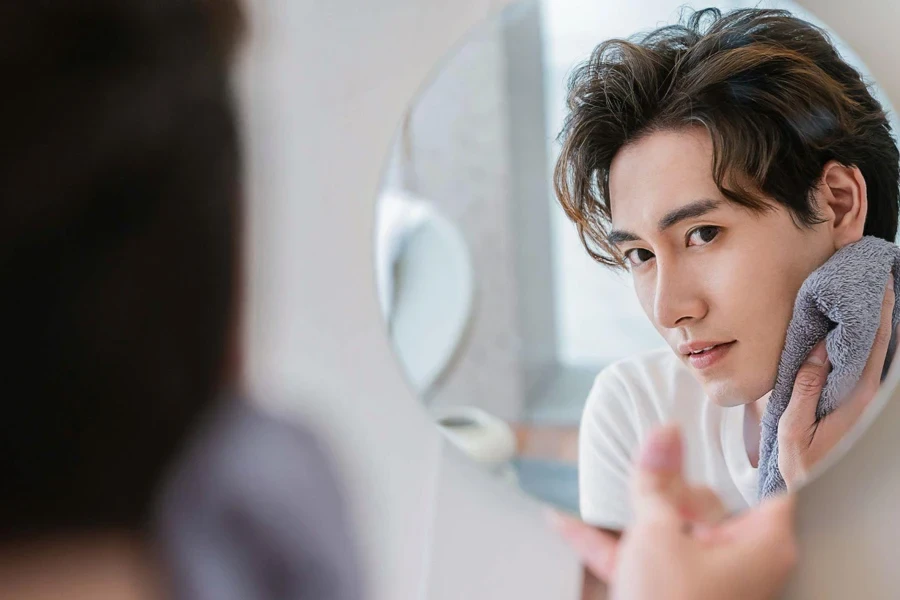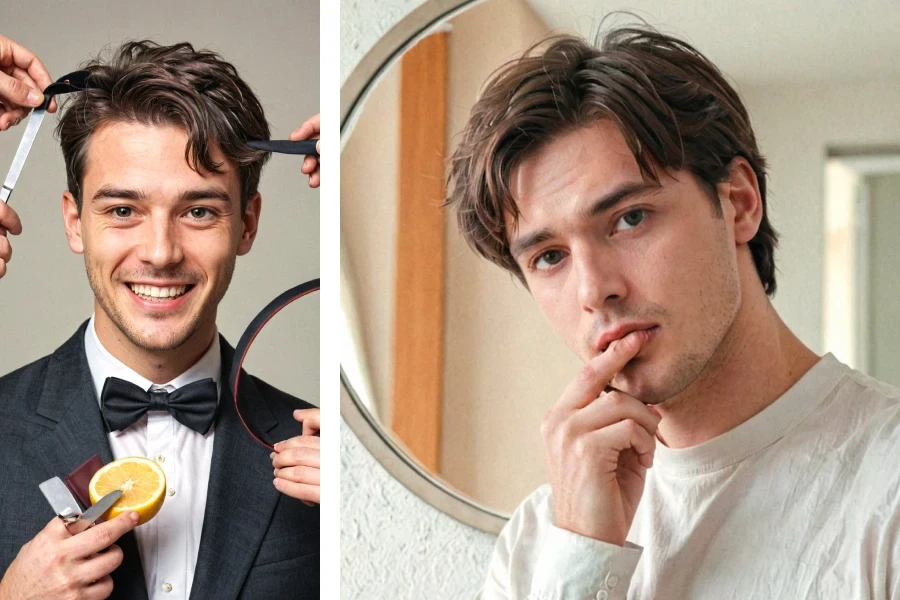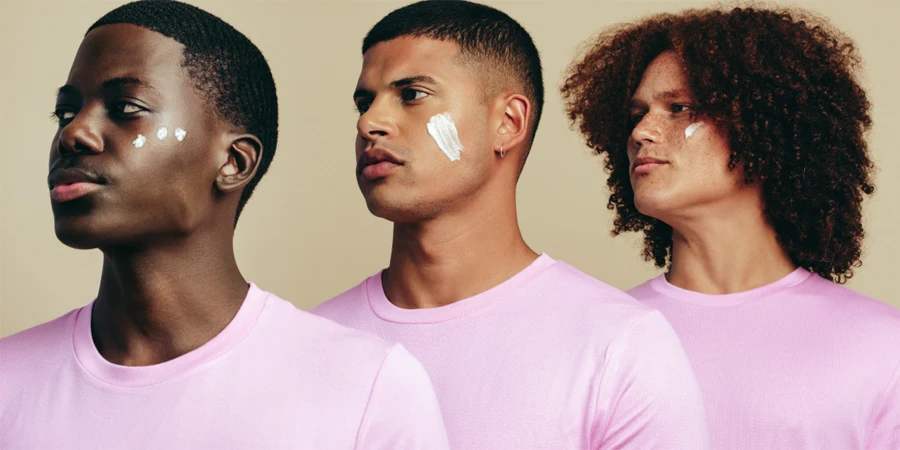Overview:
The world of men’s beauty is being revolutionized as traditional notions of masculinity are being challenged and evolved. The rise of soft masculinityis transforming the market, driven by a gender-inclusive approach that is rewriting the playbook for men’s beauty. With the influence of social media and public figures, men are beginning to embrace a softer side of masculinity. The previously dominant alpha male narratives are being dismantled. Influenced heavily by the ‘baby girl’ culture prevalent on social media, men are now embracing a softer side of masculinity. This term, traditionally a term of endearment for women, is now being used to refer to men who break away from traditional masculine norms and embrace aspects of self-care and beauty. The rise of soft masculinity in the beauty industry presents a significant opportunity for online retailers. As male consumers become more open to exploring beauty products, the market expands, creating a demand for a wider range of products tailored to men’s needs.
Table of Contents
Defining Soft Masculinity
Social Media Trend
Product Trend
Brands Leading the Way
Consumer Response
Defining Soft Masculinity
Soft masculinity represents a shift in the beauty industry’s perception of male identity. Moving away from the traditional, rugged stereotypes of masculinity, soft masculinity embraces a gentler, more nurturing side. It’s about men feeling comfortable expressing their emotions, taking care of their appearance, and breaking free from the constraints of conventional gender norms.

This trend encourages men to explore self-care, skincare, and even makeup without the fear of judgment, redefining what it means to be masculine in today’s society.
Social Media Trend
Social media and celebrities have played a pivotal role in popularizing soft masculinity in the beauty industry. Platforms like Instagram, TikTok, and YouTube have become spaces where men can share their grooming routines, skincare tips, and makeup looks, inspiring others to do the same. Celebrities like Timothée Chalamet, Harry Styles, and BTS have also contributed to this trend by embracing androgynous fashion and beauty, showcasing that self-expression and care are not bound by gender. Their influence has made it more acceptable for men to explore beauty products and express their individuality.
Product Trends:
Skin Care Innovations
With the rise of soft masculinity, there’s been a boom in beauty products tailored to men’s skincare and makeup needs. Brands are rolling out lines specifically for guys, focusing on essentials like hydration, anti-aging, and acne treatment. Eye patches and lip care are becoming popular starting points. For instance, Topicalsʼ eye patches aren’t just for skincare – they’re also a style statement and a sign of changing self-care priorities. In a similar vein, celebrities are encouraging men to see beauty in a new light. Fenty Beauty, for example, teamed up with A$AP Rocky to promote its Lux Balm as part of the #FentyBoyfriends campaign, further blurring the lines between traditional gender roles in beauty.
MakeUp for Men
Men’s makeup is on the rise, with essentials like tinted moisturizers, concealers, and brow gels becoming staples in grooming kits. These products are crafted to highlight natural features and offer a refined, understated appearance, in tune with the soft masculinity movement. Wavy’s (UK) Everyday Curl Crème encourages men to celebrate their natural curls, showcased through before and after photos and personal hair stories. Meanwhile, the Swedish brand Obayaty’s Eye Booster concealer is enriched with skincare ingredients and comes in stylish aluminum packaging, blending function with fashion.

The trend extends beyond traditional makeup, as men explore products that cater to a wider range of beauty needs. Lip tints and mascaras designed for a subtle enhancement are gaining traction, allowing men to experiment with their looks while maintaining a natural aesthetic. Brands are also introducing grooming tools, such as precision tweezers and beard-shaping kits, to complement their makeup offerings. This holistic approach to men’s beauty signifies a shift towards a more inclusive and diverse industry, where products are no longer confined by gender boundaries. As the market continues to evolve, we can expect to see even more innovative products that cater to the modern man’s desire for self-expression and personal care.
Brands Leading the Way
Several brands are leading the way in embracing and promoting soft masculinity in the beauty industry. Companies like Chanel, Tom Ford, and Clinique have launched makeup lines targeted at men, offering products that cater to their specific needs while breaking gender barriers. In skincare, brands like Bulldog, Kiehl’s, and Aesop are focusing on gentle, natural ingredients and packaging that appeals to a wider audience. These brands are not only providing high-quality products but also challenging traditional gender norms and encouraging inclusivity.
Consumer Response
The consumer response to the rise of soft masculinity in the beauty industry has been overwhelmingly positive, especially among younger generations. Millennials and Gen Z are more open to challenging traditional gender norms and embracing self-care and self-expression. This shift is reflected in the increasing demand for men’s skincare and makeup products.

Surveys show that a significant percentage of men are now incorporating skincare into their daily routines, and the stigma around men wearing makeup is gradually diminishing. The success of brands catering to this trend further indicates that soft masculinity is resonating with consumers and is likely to continue growing in popularity.
Conclusion:
The rise of soft masculinity in the beauty industry is more than just a trend; it’s a movement reshaping societal norms and opening doors for self-expression. Men are now exploring beauty products that enhance their natural features and promote self-care, from skincare essentials to subtle makeup. The future of beauty is inclusive and diverse, where products are no longer confined by gender boundaries. For online retailers, this growing market presents a golden opportunity. As men become more open to beauty products, the demand for a wider range of products tailored to their needs increases. Retailers can capitalize on this by expanding their product offerings and marketing strategies to cater to this evolving demographic. By embracing and promoting soft masculinity, online retailers can attract a broader customer base, increase sales, and contribute to the ongoing shift in societal norms surrounding masculinity and beauty.
As the market continues to evolve, we can expect to see even more innovative products catering to the modern man’s desire for self-expression and personal care. The rising trend of soft masculinity is not just a win for consumers but also for online retailers, who stand to gain from this shift towards a more inclusive and expressive world of beauty.




